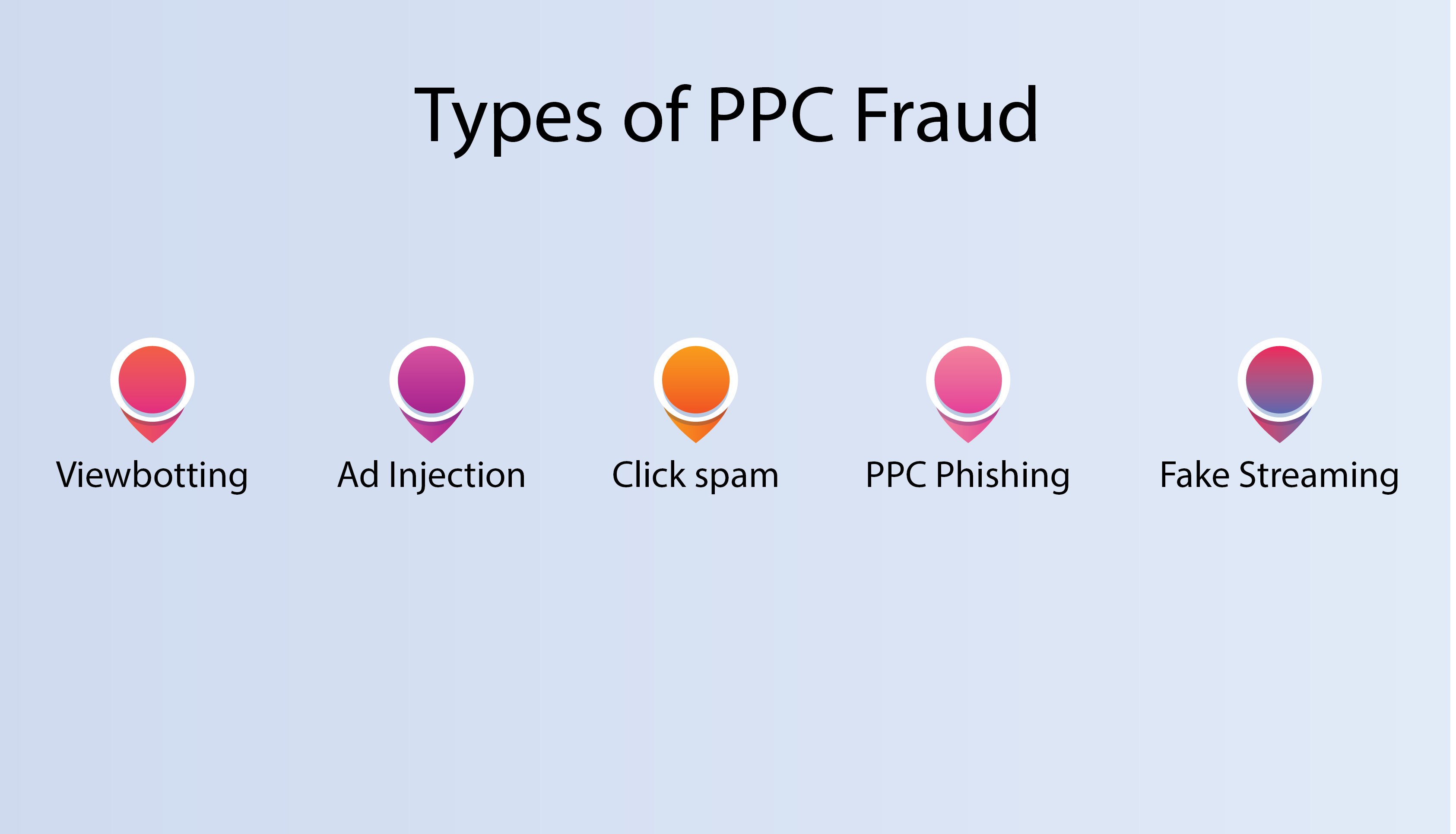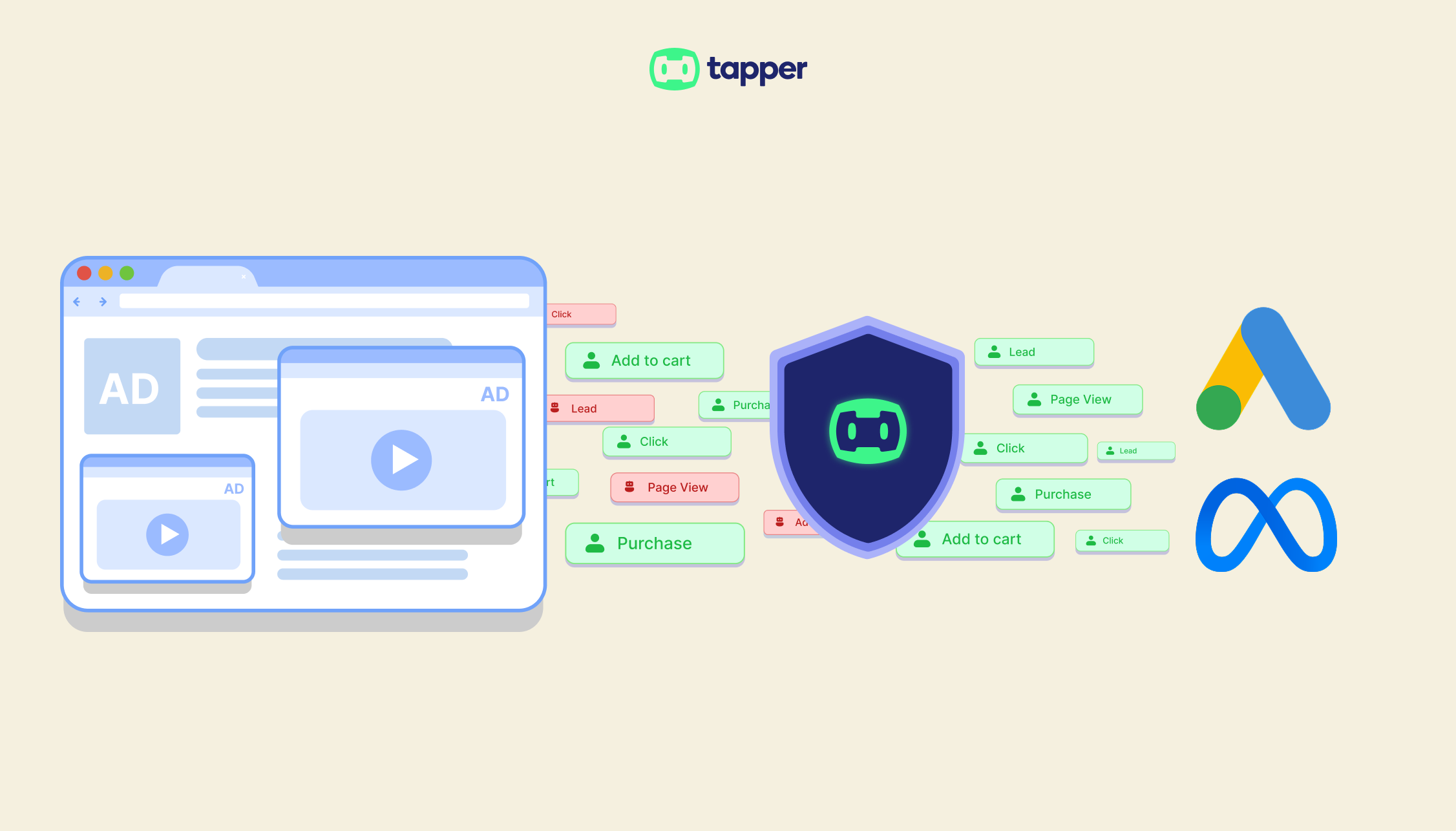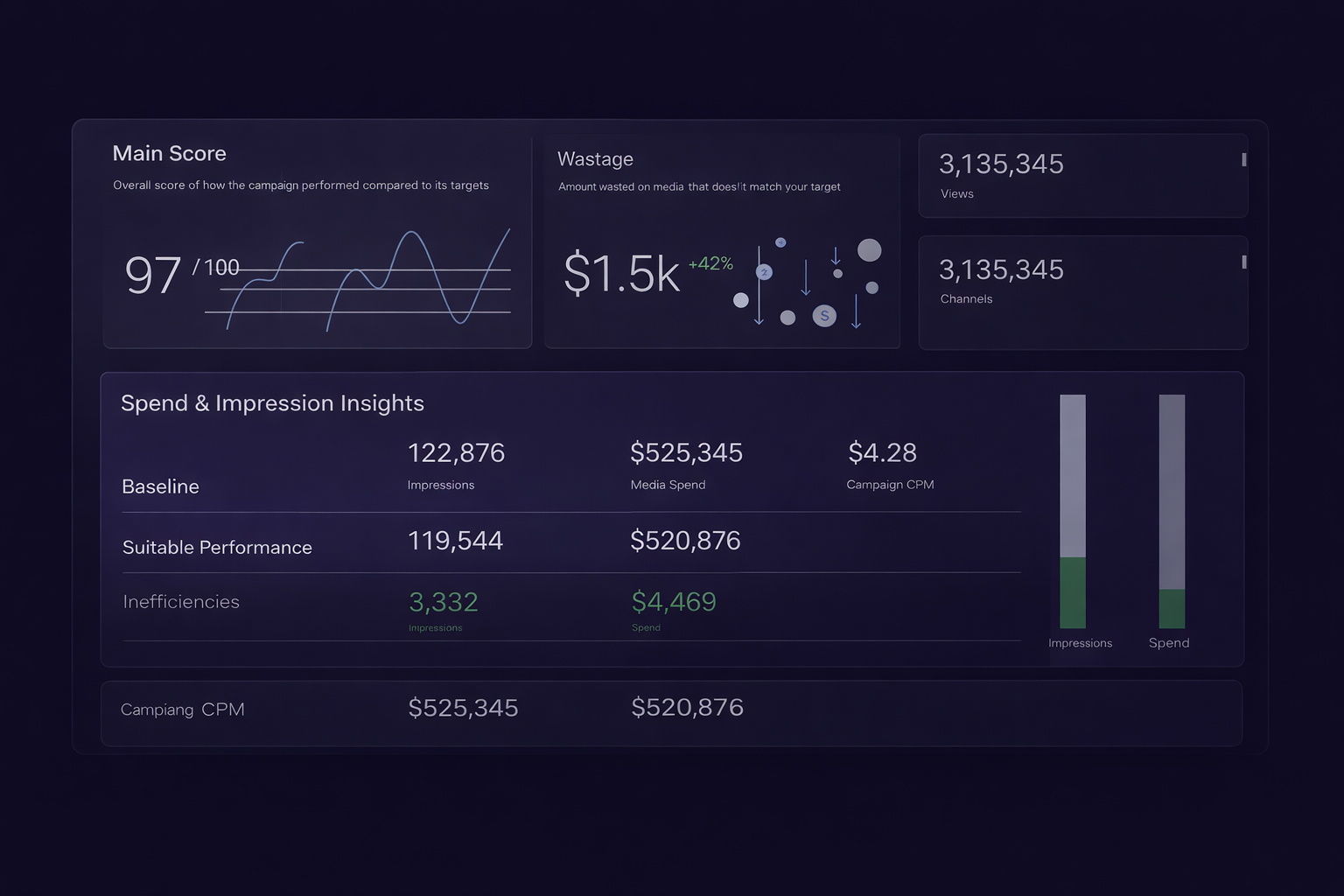Unveiling the Menace of Click Fraud in PPC Advertising
Nasser Oudjidane
•
Co-founder
•
August 21, 2024
•
3 min min read
In this blog we are going to explore the pervasive threat of click fraud in PPC advertising, uncovering its impact, common tactics, and strategies for protection.

Pay-Per-Click (PPC) advertising is booming for businesses big and small. But with this rise in popularity comes a growing threat: click fraud. Many marketers, unaware of this risk, waste advertising budgets and lose revenue. In fact, click fraud is so widespread, with fraudsters using fake clicks and views to make money, the costs related to digital advertising fraud worldwide would increase within the five years between 2023 and 2028, from 88 billion to 172 billion U.S. dollars.
As a marketer, it's critical to understand the different types of PPC fraud and take steps to safeguard your campaigns. This article will explore some lesser-known click fraud tactics and offer practical tips to identify and prevent them.
What is PPC Fraud and Why Should You Care?
PPC fraud steals money from your digital advertising budget. It's a broad term for any activity that aims to trick you into paying for fake clicks on your ads. This can happen in a few ways:
- Click bots: Fraudsters use automated software (bots) to rapidly click your ads, driving up your costs without generating real leads.
- Shady publishers: Some publishers inflate their click counts through manipulation or by paying people to click on ads. This way, they earn more revenue from advertisers like you.
- Malicious competitors: Sometimes, competitors will click your ads repeatedly to drain your budget and hinder your marketing efforts.
- Click farms: Which are operations that employ large numbers of low-paid workers to click ads constantly. This can have a significant impact on your advertising budget.
How Click Fraud Hurts Your Business
Click fraud can seriously damage your marketing efforts. Here's how:
- Wasted money: Fraudulent clicks eat away at your advertising budget. You're paying for clicks that won't lead to sales.
- Skewed data: Fake clicks make it impossible to tell how well your campaigns are really doing. You might think things are going great, but you're just throwing money away.
- Low return on investment (ROI): Click fraud drives up your cost per conversion, meaning you spend more to get fewer customers. This hurts your bottom line.
- Lost time and productivity: Your team gets bogged down investigating click fraud instead of focusing on things that actually grow your business.
Fight Back: The Most Common Types of PPC Fraud
PPC fraudsters are tricky, but you can be even trickier! Here's a breakdown of the most common schemes they use, so you can identify and stop them from draining your ad budget:

Click Spam
Click spam is a sneaky type of ad fraud that targets mobile users. Here's how it works:
- Fake user: Fraudsters use hidden programs to make it seem like real people are clicking your ads, even though they aren't. These fake clicks can drain your budget and skew your campaign data.
- Competitor sabotage: Sometimes, competitors use click spam to inflate the clicks on your ads, making it look like they're performing better than they really are. This confuses your efforts to track what's working.
- A Real example: DrainerBot this massive scam used infected apps to click ads on Android devices without users even knowing. Users wasted data and money, while fraudsters made a profit.
How to Fight Back:
- Fraud detection software: Use tools that sniff out fake clicks and protect your budget.
- Monitor your campaigns: Keep a close eye on your ad data to spot unusual activity.
- Trusted partners: Work with reputable ad networks and publishers who take click fraud seriously.
- Ad Fraud detection software: Will help ensure you're only paying for real clicks.
Ad Injection
Ad injection fraud is like hijacking someone else's storefront to sell your products. Here's the scam:
- Shady software: Fraudsters trick users into installing software (adware) that secretly injects fake ads onto websites.
- Fake ads: These fake ads replace legitimate ads and disrupt the user's experience.
- Wasted money: For advertisers, their ads end up on low-quality sites, hurting performance and brand image.
Fight Back Against Ad Injection:
- Download wisely: Only install software from trusted sources like official app stores.
- Security software: Keep your anti-virus and anti-malware software up to date to catch adware.
- Ad blockers: Consider using ad blockers or extensions that specifically block ad injection.
PPC Phishing
Phishing scams aren't just in your email anymore. Here's a new twist:
- Fake ads from real brands: Fraudsters copy real financial companies' ads and send users to fake websites.
- Trusted brand: Users trust the brand name and click, unknowingly giving up personal info.
- Devastating consequences: Customers can lose money and have their identity stolen. Brands can lose trust and reputation.
How to Fight Back:
- Monitor your ads: Keep a close eye on your ads to spot suspicious activity.
- Educate your users: Teach them how to identify fake websites and avoid phishing scams.
Viewbots
Viewbotting is a sneaky tactic where streamers use fake bots to inflate their view count. Here's why it's bad:
- Fake popularity: Viewbots make streams seem more popular than they are, hurting honest streamers.
- Deceptive ads: Advertisers pay to reach real viewers, but viewbots steal their money by showing ads to fakes.
How to Avoid Viewbots:
- Twitch fights back: Twitch uses tech and human reviewers to catch viewbotters.
- Focus on real growth: Build a genuine audience with engaging content, not fake views.
Streaming Fraud
Streaming fraud uses bots to fake streams and cheat the system. Here's how it works:
- Bogus popularity: Fraudsters inflate play counts to make songs seem like hits, stealing royalties from real artists.
- Wasted ad money: Advertisers pay to reach real listeners, but fake streams mean their ads are wasted.
- Deceived brands: Partnerships with "popular" artists built on fake streams can hurt brands.
Everyone Needs to Be Aware:
- Streaming platforms: Constantly improve anti-fraud measures.
- Advertisers: Be cautious about where you place ads.
- Artists: Focus on building a real audience, not fake plays.
A Few Wins Against Ad Fraud:
There's some good news in the fight against click fraud! Companies are pushing back against digital fraudsters and achieving some significant victories.
In 2016, Twitch, a popular live streaming platform, took a major stand against viewbotting – a practice where fake users inflate a streamer's view count. Twitch filed a lawsuit against a group of seven individuals who were offering viewbotting services. The defendants were ordered to pay nearly $1.4 million to Twitch for a variety of offenses, including trademark infringement and unfair competition. This lawsuit set a strong legal precedent against viewbotting and sent a clear message that such activities wouldn't be tolerated.
Another success story comes from the takedown of a massive ad fraud operation known as Methbot/3ve. This international cybercriminal ring, traced back to Russia, was estimated to be raking in millions of dollars daily by using bots to target video advertising platforms. An investigation led by the FBI, with cooperation from other companies, led to the arrest of several key figures involved in the scheme, including the ringleader, Aleksandr Zhukov. These arrests demonstrate the power of collaboration between law enforcement agencies and businesses in combating online fraud. These successful takedowns show that click fraud isn't an unbeatable foe. By working together, companies and authorities can make the online advertising world a safer and more trustworthy place for everyone.
Tapper Is Here For You!
As a digital marketer or business owner, understanding PPC fraud is essential for safeguarding your operations. Utilizing specialized click fraud detection software, like Tapper, is crucial in defending your PPC campaigns. Acting as a protective barrier, Tapper identifies and mitigates fraudulent activity, allowing you to optimize your advertising budget effectively.
Stop Paying for Fake Traffic
Run a 30-day Tapper trial to set your baseline CPA, block invalid traffic in real time, and receive a final report comparing your CPA before and after protection.
Get your free trial

